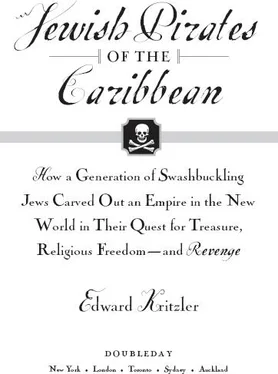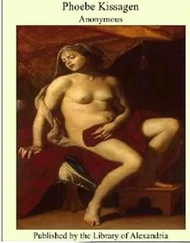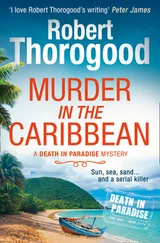Edward Kritzler - Jewish Pirates of the Caribbean
Здесь есть возможность читать онлайн «Edward Kritzler - Jewish Pirates of the Caribbean» весь текст электронной книги совершенно бесплатно (целиком полную версию без сокращений). В некоторых случаях можно слушать аудио, скачать через торрент в формате fb2 и присутствует краткое содержание. Год выпуска: 2008, ISBN: 2008, Издательство: Knopf Doubleday Publishing Group, Жанр: Старинная литература, на английском языке. Описание произведения, (предисловие) а так же отзывы посетителей доступны на портале библиотеки ЛибКат.
- Название:Jewish Pirates of the Caribbean
- Автор:
- Издательство:Knopf Doubleday Publishing Group
- Жанр:
- Год:2008
- ISBN:9780385528368
- Рейтинг книги:3 / 5. Голосов: 1
-
Избранное:Добавить в избранное
- Отзывы:
-
Ваша оценка:
- 60
- 1
- 2
- 3
- 4
- 5
Jewish Pirates of the Caribbean: краткое содержание, описание и аннотация
Предлагаем к чтению аннотацию, описание, краткое содержание или предисловие (зависит от того, что написал сам автор книги «Jewish Pirates of the Caribbean»). Если вы не нашли необходимую информацию о книге — напишите в комментариях, мы постараемся отыскать её.
Jewish Pirates of the Caribbean — читать онлайн бесплатно полную книгу (весь текст) целиком
Ниже представлен текст книги, разбитый по страницам. Система сохранения места последней прочитанной страницы, позволяет с удобством читать онлайн бесплатно книгу «Jewish Pirates of the Caribbean», без необходимости каждый раз заново искать на чём Вы остановились. Поставьте закладку, и сможете в любой момент перейти на страницу, на которой закончили чтение.
Интервал:
Закладка:
On July 21, Charles’s victorious army swept through the city. For three days, his righteous crusaders looted Tunis and massacred its citizens. An estimated seventy thousand people were killed and forty thousand taken captive. The carnage was called the worst of the century by Catholic chroniclers who wrote of the shameful affair, for the victims were not Barbarossa’s men but the innocent people of Tunis who a year before had been the Christians’ allies. Only when the crusaders and freed Christian slaves began killing one another in a fight over the spoils did the assault end. Jews were not exempted from this bloodshed of murder and looting. As one noted, “The Jews had no savior on the day of the Lord’s wrath.” Those not “smitten with the edge of the sword when the uncircumcised came to the city” were taken captive and held for ransom, while those who escaped into the desert were left destitute when the Muslims “plundered everything they brought with them.” 22
To memorialize his victory, Charles had brought along a poet and historian to record his victory, and a court painter whose mural of Sinan’s force unsuccessfully counterattacking was made into a tapestry that hangs today in a Vienna museum.
On their return home, the twenty thousand rescued Christians sang their emperor’s praise, hailing him as the knight-errant who had vanquished the scourge of Christendom. His reputation as defender of the faith was enhanced when the new pope approved his demand that an Inquisition commence in Portugal. Charles had been pushing for this, though not for any sanctimonious religious reason. Rather, the conversos in Portugal had accumulated wealth that Spanish conversos had transferred to them for safekeeping, thereby bleeding Spain’s riches. To rein in the conversos’ power, he called on Portugal’s King John to threaten them with the holy fire. The concerted action of the two monarchs brought about a further exodus of conversos from both nations.
King John went along with Charles, but did so reluctantly. Though the two were close—John’s sister Isabella was happily wed to Charles—Portugal’s king could ill afford to bar these talented people from his empire. He sought their advice for most endeavors he undertook; moreover, he was heavily in debt. Conversos had loaned him 500,000 ducats and he knew they were good for more. Just as Spain’s New Christians rose to influential positions denied them as Jews, so too had Portugal’s Jews. From the time they were forcibly converted in 1497, as New Christians they had married into the best families and filled the highest offices of state. Portugal’s nearly 100,000 conversos represented 10 percent of King John’s citizenry. Despite their elevated status, the general populace did not trust them. Having rejected conversion in Spain, it was not likely that a forced baptism had truly altered their beliefs. From infidels outside the church they were now seen as heretics within.
By the mid-1530s, Charles had come around to the view that while many Spanish conversos only pretended to be Christian, they were neither numerous nor powerful enough to threaten him. He appreciated their ability to stimulate commerce and thereby increase the cash flow to his treasury, which by March 1536 was nearly empty. His adviser Corbos cautioned him that he was “on the verge of bankruptcy.” 23Thus, in line with his laissez-faire attitude to their presence both in Jamaica and elsewhere in the New World, he directed the magistrates of Antwerp, northern Europe’s trading capital, to grant Spanish conversos full settlement rights, and solved the problem of Jamaica by giving the island away.
Although little is known about the Portugals Charles sent to Jamaica, apparently there was trouble right away, because at the same time Charles was recruiting his crusading army, he hurriedly dispatched an abbot to the island to keep an eye on religious matters. In March 1535, Father Amador de Samano arrived in Jamaica. He had gone ahead on the king’s orders before being accredited by the pope. Unable to produce papers from Rome, he was not recognized by Jamaica’s governor, who “used many disrespectful words unto him and other things worthy of censure and punishment.” When Charles was notified that his governor had acted “in disservice of God and in disrespect of our royal decrees,” he ordered him to “purge his offence before the Royal Audiencia *3in Santo Domingo.” 24
For Charles, Jamaica’s rejection of his abbot was a final straw. Years before, he had allocated money for a Jamaican church that was still being built and a hospital that never was. He received samples of gold ore, but not much more. His two haciendas and their livestock were valued at five thousand pesos, and though he also had two sugar mills, the only profit he made was selling produce to the starving settlers. Even then he had to loan them money to buy the goods, and if they didn’t pay, threaten to sell the produce to his other colonies.
Jamaica was a losing proposition, and the governors he sent there were no better. Each accused his predecessor of diverting funds and selling off the king’s acreage “as their own private property.” It had been ten years since a plague of smallpox wiped out most of Jamaica’s Indians and the island’s more ambitious settlers left to seek their fortunes elsewhere. The allure to leave in 1536 was even more compelling as word spread that the search for El Dorado was on, with three conquistadors climbing over mountains in a competitive race to find the haunt of “the Golden One,” the Indian king bathed in gold dust. Between the island’s Portuguese, whom he needed but didn’t trust, and the lazy Spaniards who remained, Charles was convinced that he wasn’t going to realize much of a profit from Jamaica. The island, he concluded, would be good only as a trading post, a way station for ships en route to and from the New World.
The answer he settled on was to deed Jamaica to the Columbus kin. Since the summer of 1536, Charles had been negotiating with Diego Colón’s widow, María de Toledo, to settle a lawsuit she brought to recover Columbus’s rights of discovery on behalf of his grandson, her eight-year-old son, Luis Colón. In January 1537, she agreed to drop the suit in return for Jamaica. Charles did not question why Doña María wanted Jamaica; he was glad to get rid of it. But when he drafted the agreement to relinquish the troubled colony, she rejected it because it did not include power over the Church.
After a month’s stalemate he reluctantly gave in. 25This provision—subordinating the Jamaican church to the Columbus family—was unprecedented. For the next century, the family kept Jamaica, alone in the Spanish Empire, out of bounds to the Inquisition. Doña Maria’s decision was critical to the Portugals with whom she worked closely to develop the island’s trade. Like the court Jews who counseled Columbus on the issue of hereditary rights, Jamaica’s Portugals would have encouraged her to hold firm to this demand.
Unfortunately, the absence of an Inquisition in Jamaica also means there is almost a complete absence of information about these Portugals who opted for New World adventure over Old World connections. While most conversos fled east or settled around the Mediterranean, these Portugals chose Jamaica, an island in a new sea. Rather than reside in restrictive exile communities under the watchful eye of another ruler, they opted for the unknown. In these peak years of discovery and conquest, they looked to a New World where each man could be his own ruler and had the same hot blood for adventure that surged through all who came.
In February 1537, Charles formally ceded Jamaica to the Columbus family. 26It would still be a part of the Spanish realm and the family could not erect forts without Crown permission or pursue an independent foreign policy. Except for these stipulations, Jamaica, and “all the mines of gold” therein, were now the personal estate of the Columbus family whose heirs would bear the title Marquis de la Vega. *4After the matter was settled, Pedro de Manzuelo, royal treasurer of Jamaica, wrote the king. He had “heard that His majesty had bestowed the island of Jamaica on the Admiral” and cautioned:
Читать дальшеИнтервал:
Закладка:
Похожие книги на «Jewish Pirates of the Caribbean»
Представляем Вашему вниманию похожие книги на «Jewish Pirates of the Caribbean» списком для выбора. Мы отобрали схожую по названию и смыслу литературу в надежде предоставить читателям больше вариантов отыскать новые, интересные, ещё непрочитанные произведения.
Обсуждение, отзывы о книге «Jewish Pirates of the Caribbean» и просто собственные мнения читателей. Оставьте ваши комментарии, напишите, что Вы думаете о произведении, его смысле или главных героях. Укажите что конкретно понравилось, а что нет, и почему Вы так считаете.












